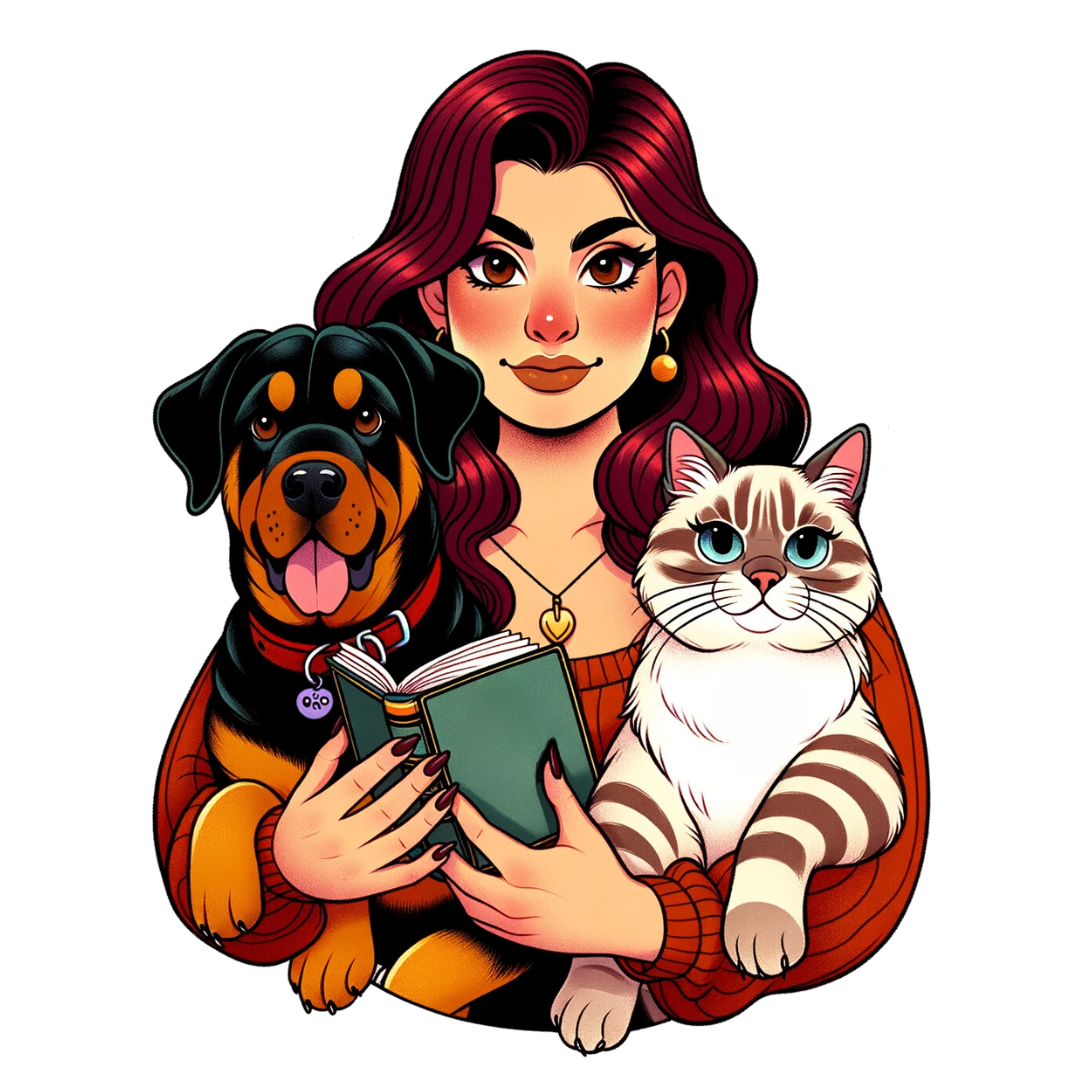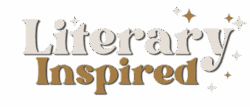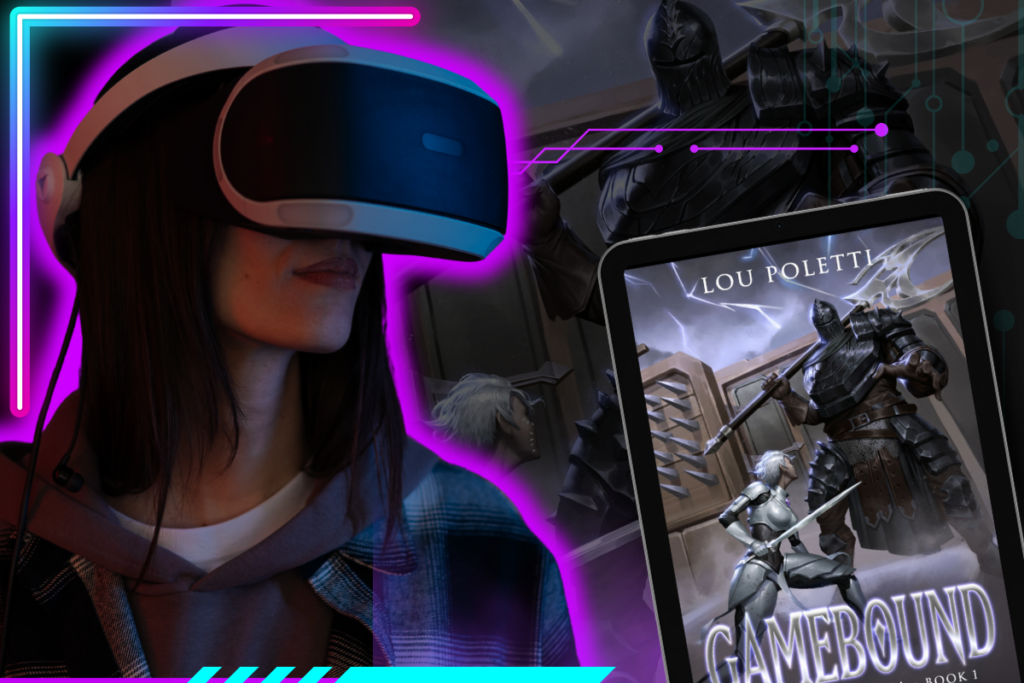I am so excited to be bringing back my Author Spotlight series, a dedicated space on my blog and now Substack where I showcase the incredible talent of indie authors I’ve had the privilege of working with. This series aims to connect the indie author community, share marketing insights, and introduce readers to their next favorite book. Each post shares the unique journeys of authors as they navigate the complexities of publishing, providing a platform for them to share their experiences and advice, while also promoting their latest works. Today, I am thrilled to introduce Lou Poletti, an emerging author in the gamelit community. Lou’s debut novel, “Gamebound,” is set to release on Kindle Unlimited on April 30th and is currently available for pre-order. “Gamebound” plunges readers into the virtual world of Verindale, where the protagonist, Nylah, awakens with no memory of her identity and must navigate a maze of challenges and discoveries. The book promises to blend intense virtual reality gaming with deep psychological themes, making it a unique addition to the gamelit genre. As Lou’s digital strategist and marketer, I’ve been closely involved in crafting the promotional campaign for “Gamebound.” Our efforts have focused on building anticipation and engagement through targeted social media marketing and managing the ARC & Street Team activities. These initiatives aim to amplify Lou’s visibility and connect her with readers eager for new and immersive fantasy experiences. Through creative content and strategic outreach, we’ve worked to ensure that “Gamebound” not only reaches its audience but also leaves a lasting impression. A Conversation with Lou Poletti Can you give us a brief overview of “Gamebound” and what inspired you to write this novel? Gamebound is the story of a woman who wakes up in a video game with half her memories gone and has to piece herself back together as she plays her way out. Along the way, she fights against physical creatures and her own emotional demons to keep her sanity in a world where her thoughts are not just her own. The whole series started in a little café in Regensburg, Germany, with an amazing gluten-free chocolate cake. I was enjoying my favorite tea and cake when I started thinking about an elaborate game system like the ones I enjoyed playing. Then I wondered what would happen if someone woke up in one with no idea why they were there, and out came the iPad. My colleagues would even laugh when they saw me walking down the street typing away at my tablet while on my way to and from work. I spent a long time not intending to publish it, though, and I initially just used it as my own form of writing therapy. That was until my dad gave it to my cousin Felicity, and then I just had to “get this out to the world.” As a debut author, what were some of the biggest challenges you faced while writing and preparing “Gamebound” for publication? Perfectionism and imposter syndrome were some of my biggest. Navigating the monumental list of tasks that encompass self-publishing and building an audience was also challenging at times. That said, Google-fu, learning to ask for help when needed, and my husband just being a bastion of encouragement were wonderful antidotes. “Gamebound” features a unique blend of virtual reality and game mechanics. What drew you to incorporate these elements into your storytelling? I adore RPG game series like the Elder Scrolls and Dragon Age and can get lost in their worlds for hours. Sometimes, I’m not even playing; I’m just looking up lore on the Wiki page and enjoying my trip down the rabbit hole, reading all the creative bits of lore the writers and designers manage to stuff into those games. It’s so inspiring, and it’s what led me to ponder about how I could design my own in-depth system. A few cups of tea and a demolished chocolate cake later, I was well on my way to creating one, and to this day, I still have my “Character Classes” document and the notes I created in that café. Your novel delves deep into psychological themes alongside its adventurous plot. Why did you choose to focus on these themes, and how do you think they enhance the story? As a mental health advocate, I’d love to see more representation in fiction. In certain cases, I believe it can allow people to interact with these topics from a safe distance when veiled through fantasy or other fictional means, as the fantasy helps create distance from the real-world equivalent. At least, that’s the theory. This particular installment focuses on acceptance—accepting help, accepting what is, and accepting what we can do in each moment. It’s my opinion that right balance of humor and heaviness can provide a safe space for people to interact with more difficult topics and, importantly, see them in a new light. I’ve seen it happen in all kinds of art forms and find it captivating when it works. It’s something unique to art and I believe that personal connection is what makes art, and by extension stories, meaningful. I felt I had a unique chance to cultivate that balance in my writing in the hopes that someone might see a situation differently or that some of the lessons and concepts might resonate with readers going through something similar. Could you share your process for developing your main character, Nylah, and what you hope readers will take away from her journey? Nylah evolved over my many iterations. At first, she was simply all the things I wished I could say out loud without being labeled a delinquent, but as I rewrote, I decided I needed to get to know her better. I interviewed her in my mind as we sat together in a room. I asked her several questions and even realized I had two versions of her to get to know—the one with her memories and the one without them. The differences between them surprised





